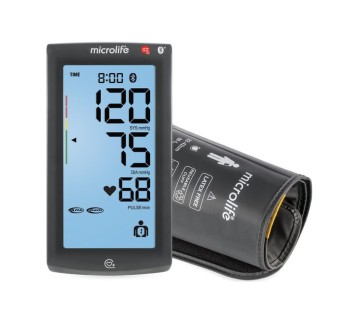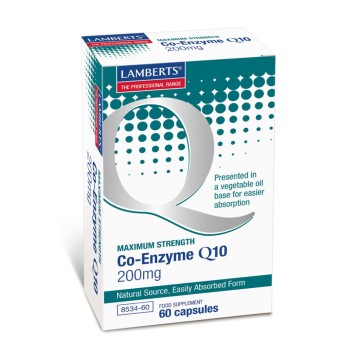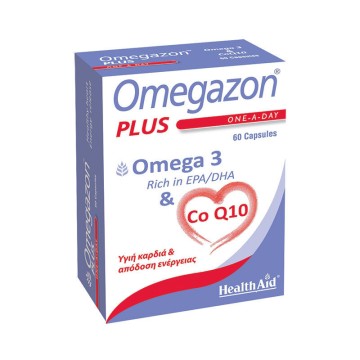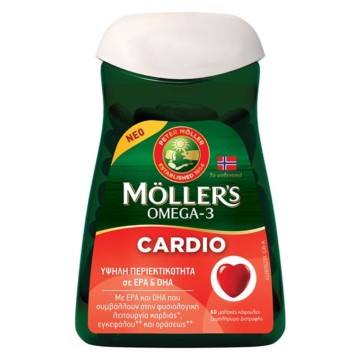What is atrial fibrillation?
Η
atrial fibrillation (AFib) is a common heart condition characterized by
irregular -
rapid heartbeat, leading to an increased risk for blood clots, strokes, heart failure and other complications. It is recognized as
arrhythmia due to the chaotic functioning of the atria (upper) chambers of the heart, which beat out of sync with the ventricles (lower chambers). Many people with atrial fibrillation may have no symptoms, while others may experience a fast heartbeat, shortness of breath, or dizziness.
Episodes of atrial fibrillation can be transient or permanent, and although the condition is not usually immediately life-threatening, it requires proper medical attention to avoid serious complications. Treatment focuses on preventing clots from forming, getting the heart rhythm back to normal, and managing the causes of the arrhythmia. Treatment methods include medication, electric shock therapy to restore the heart to normal rhythms, and procedures to block or correct faulty signals in the heart. If someone also suffers from atrial flutter, the treatments for both conditions are usually similar.
Types of atrial fibrillation
There are several
types of atrial fibrillation with different characteristics which are as follows:
- Occasional atrial fibrillation: Symptoms come and go unpredictably. They can last from a few minutes to hours, and in some cases, up to a week. Although symptoms sometimes go away on their own, some patients may need treatment.
- Persistent atrial fibrillation: The irregular heart rhythm remains continuous and does not return to normal without medical intervention. Treatment is required to correct the heart rhythm.
- Prolonged atrial fibrillation: This type lasts for more than 12 months. Special medications or medical procedures are required to correct the irregular heartbeat.
- Persistent atrial fibrillation: In this case, the irregular heart rhythm cannot be corrected. Treatment focuses on controlling the heart rhythm with drugs and preventing blood clots from forming.
Symptoms of atrial fibrillation
The
symptoms of atrial fibrillation may include:
- Feelings of a fast or pounding heartbeat
- Chest pain
- Αδυναμία
- Reduced exercise capacity
- Dizziness
- Fatigue
- Faint
- Breathing difficulty
It is important to note that some people with atrial fibrillation do not experience any symptoms.

When to see a doctor
See a doctor if you notice any of the following symptoms:
- Chest pain that comes and goes
- Sudden change in your heart rate
- Heart beat lower than 60 ή over 100
- Chest pain that goes away quickly, but you're still worried
Causes of atrial fibrillation
The
causes of atrial fibrillation include:
- By birth heart problem
- Sleep disorder (obstructive sleep apnea)
- Thyroid
- Heart attack
- Heart valve disease
- High blood pressure
- Lung diseases (pneumonia)
- A problem with the heart's natural pacemaker (weak sinus syndrome)
- Clogged arteries (coronary artery disease)
- Virus infections
Bad habits that can cause atrial fibrillation:
- Alcohol or caffeine
- Ναρκωτικά
- Smoking
- Taking drugs that contain stimulants
Life expectancy with atrial fibrillation
In relation to
life expectancy, recent improvements in medical care and treatment have led to
increased survival time for patients with
Atrial Fibrillation. Although the condition is associated with an increased risk of mortality, mainly due to complications such as strokes and heart failure, the application of modern therapeutic approaches has greatly improved the outlook for patients. New medicines, such as blood thinners that are usually prescribed for prevention
blood clots and strokes in people with atrial fibrillation and procedures such as catheter ablation have helped reduce mortality and improve quality of life.
Prevention of atrial fibrillation
To improve your heart health and reduce your risk of problems like heart disease and atrial fibrillation (AFib), it's important to lead a healthy lifestyle. Here are some simple and easy to understand tips:
- Diet: Choose a diet rich in fruits, vegetables, whole grains and low-fat proteins. Limit your intake of saturated fat, cholesterol, sodium (salt) and added sugars.
- Natural activity: Exercise regularly, at least 150 minutes of moderate-intensity exercise per week or 75 minutes of vigorous-intensity exercise. Walking, swimming, cycling, and running are equally good options.
- Weight Loss: If you're over your ideal weight, losing weight can help reduce your risk of heart disease.
- Alcohol restriction: Consume alcohol in moderation. Excessive drinking can increase blood pressure and the risk of heart disease.
- Combat Stress: Find healthy ways to manage stress, such as through yoga, meditation, or spending time on hobbies you have.
- Quitting Smoking: Smoking is one of the main risks to heart health. Quit smoking to improve your heart health.
What should I eat when I have atrial fibrillation?
Making healthy dietary changes can help improve overall heart health. If you have atrial fibrillation, a common heart rhythm disorder, you may need to eat a heart-healthy diet that includes:
- Φρούτα
- Low-fat or fat-free dairy products
- Vegetables
- Whole grain foods
- Proteins such as lean meats, nuts, seeds and beans
- Foods low in salt, added sugars and saturated fat
By following these tips, you can improve your heart health and reduce your risk of developing heart problems. It is always important to consult your doctor before making any major lifestyle changes, especially if you have existing medical issues or risks.
Find on
wecare.gr the right products
Related products:
Sources:
1)
Atrial fibrillation - Symptoms and causes - Mayo Clinic2)
Symptoms of atrial fibrillation3)
What is Atrial Fibrillation?4)
Atrial Fibrillation (Afib): Causes, Symptoms and Treatment5)
What Is Afib?6)
What Is Atrial Fibrillation?7)
Atrial fibrillation - Diagnosis and treatment8)
What causes atrial fibrillation?9)
Types of Atrial Fibrillation10)
Everything You Need to Know About Atrial Fibrillation11)
5 Things You Should Know about Atrial Fibrillation12)
When to talk to your doctor
PHARMACIST, M.Sc.
CEO Wecare IKE



















